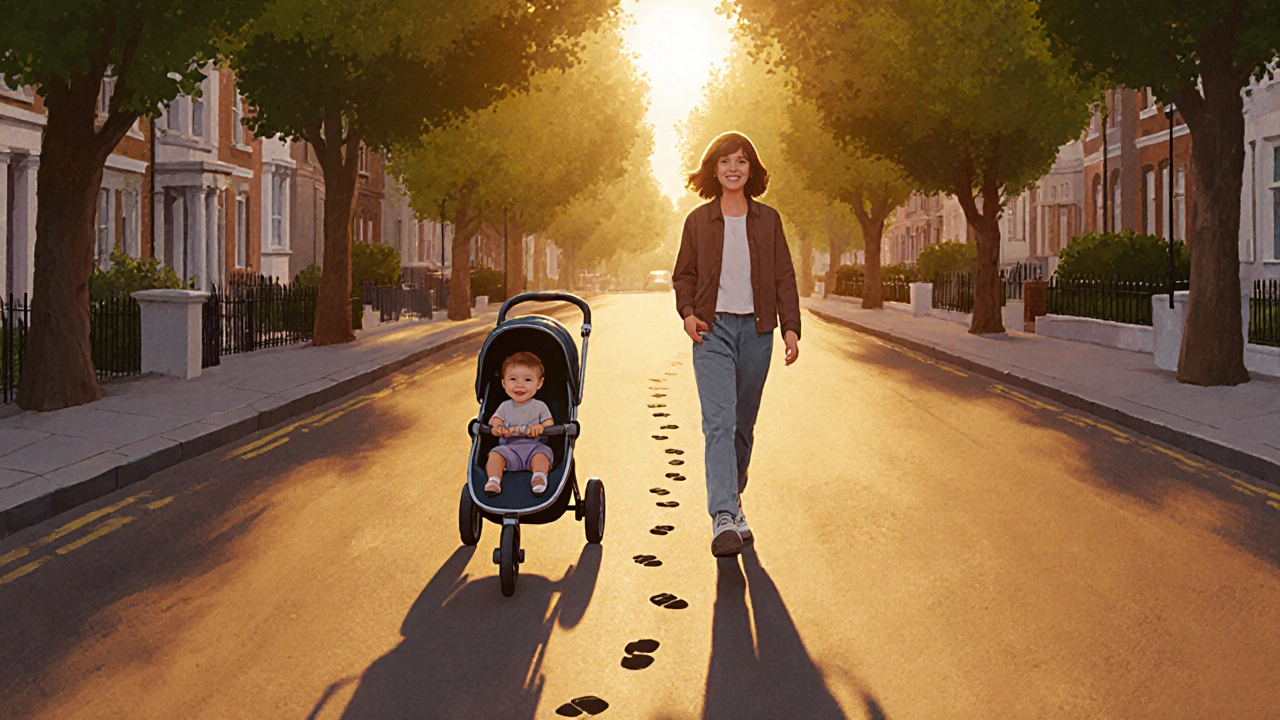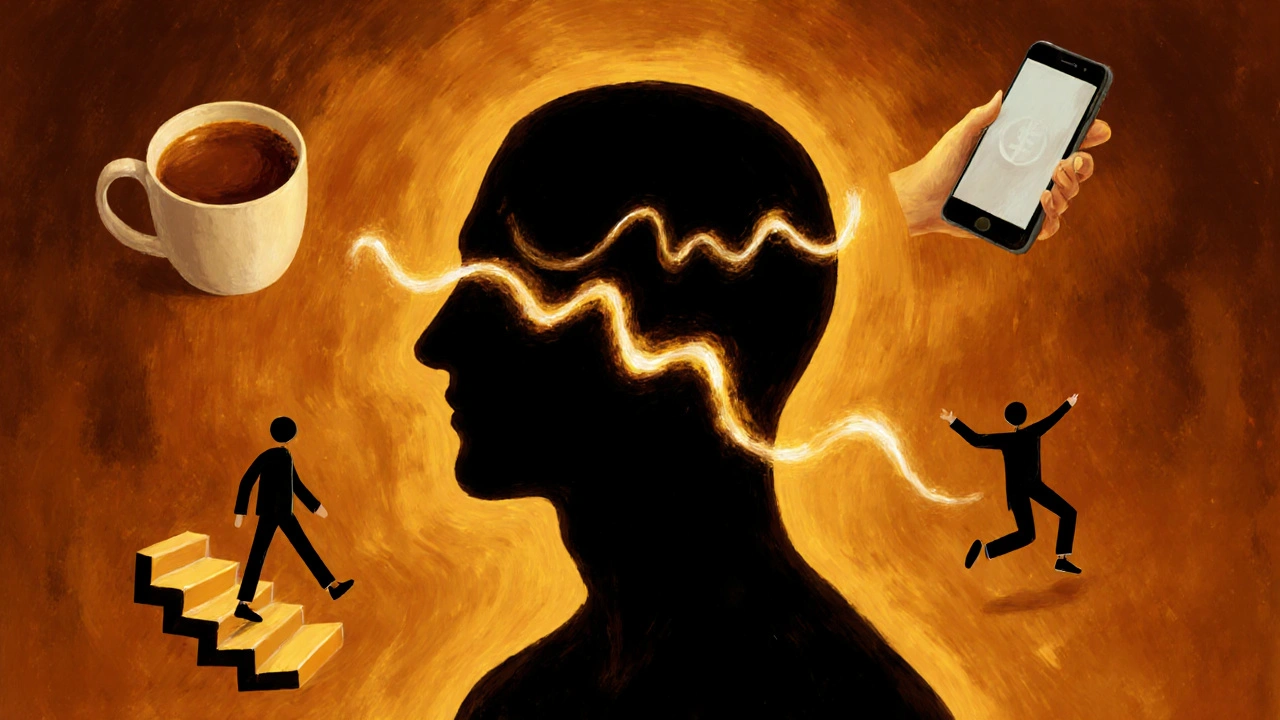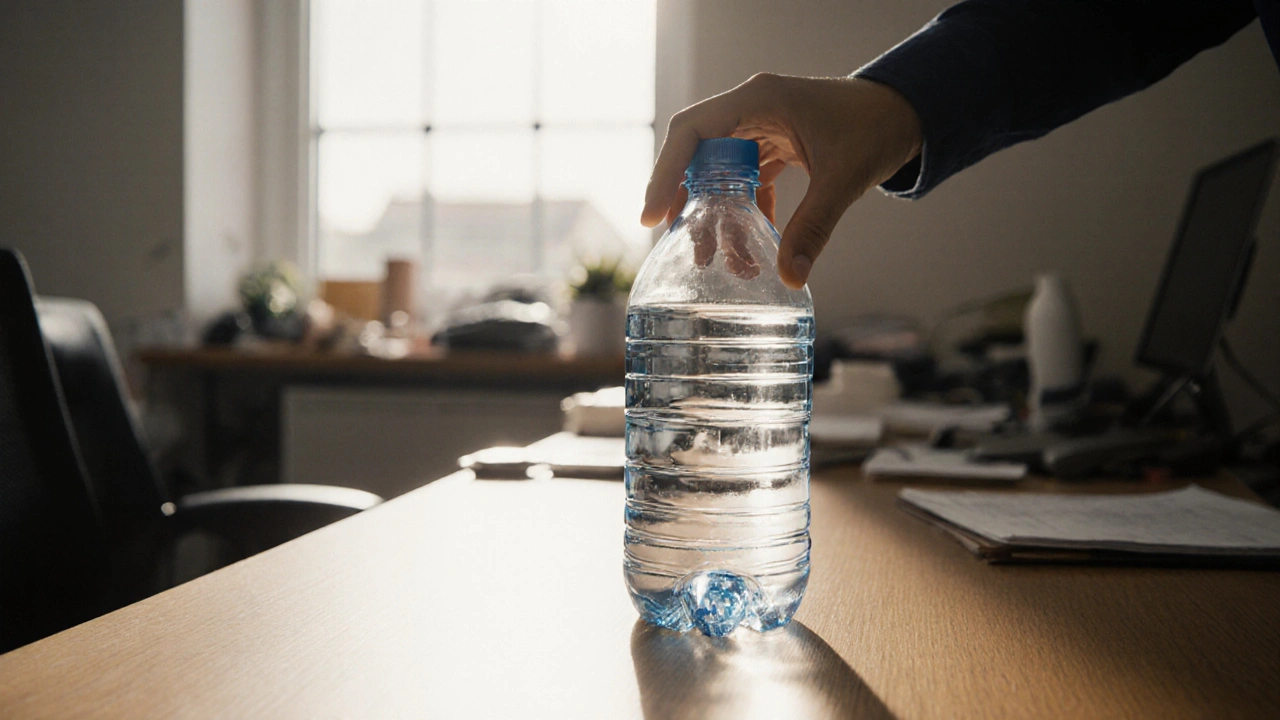Most people set health goals with good intentions-lose weight, sleep better, run a 5K-but by February, they’re already back to old habits. Why? Because health goals aren’t really about fitness or food. They’re about unlocking a version of yourself you haven’t met yet. And that version doesn’t show up because you bought a new yoga mat or downloaded a fitness app. It shows up because you changed how you think about your body, your energy, and your daily choices.
Health goals aren’t about discipline-they’re about design
Discipline sounds noble, but it’s exhausting. It’s the voice that says, "I should be doing better." That voice doesn’t last. What does last is design. Design means building systems so simple and so tied to your life that skipping them feels weirder than doing them.
Take hydration. Instead of saying "I’ll drink eight glasses a day," try this: keep a water bottle on your desk, refill it every time you finish a meeting, and mark a line on the side for each refill. Done right, you’ll hit 2 liters without thinking about it. That’s design. That’s sustainability.
Same with sleep. No one wakes up and says, "I’m going to sleep better." But people who sleep better have one thing in common: they stop using their phones 45 minutes before bed. Not because they’re disciplined. Because they moved the charger to the kitchen. That’s not willpower. That’s environment design.
Start with one non-negotiable habit
Trying to fix everything at once is the fastest way to quit. You don’t need ten health goals. You need one that’s so important, you’d do it even if you were tired, stressed, or busy.
For most people, that one habit is movement-not gym sessions, not step counts, but daily motion. Walk for 20 minutes after lunch. Park farther away. Take the stairs. Dance while you cook. Movement isn’t about burning calories. It’s about signaling to your brain that you’re still in charge of your body.
A 2023 study from the University of Birmingham tracked 1,200 adults who started with just one daily movement habit. After six months, 78% reported better focus, lower anxiety, and improved mood-even if they hadn’t lost weight. That’s the real win: your mind starts trusting your body again.
Health goals that stick connect to your identity
People don’t change because they want to be healthier. They change because they want to be someone who does healthy things.
Instead of saying, "I want to eat better," say, "I’m someone who fuels my body with real food." Notice the difference? The first is a goal. The second is an identity. And identities don’t get abandoned when you’re tired. They get defended.
Try this: write down three things you already believe about yourself. "I’m reliable." "I’m curious." "I show up." Now, pick one and attach a health habit to it. "I’m someone who shows up for my energy." Then, build a tiny ritual around that. Maybe it’s making a protein-rich breakfast every morning. Or drinking tea instead of soda at 3 p.m. Small. Consistent. Meaningful.

Your energy is your currency
You don’t have unlimited time. You don’t have unlimited willpower. But you do have energy-and energy is the one thing that determines whether you can do anything at all.
Most health goals ignore energy. They focus on output: steps, calories, reps. But what matters more is input: how much you sleep, how you handle stress, what you eat before noon.
Here’s what works: track your energy, not your weight. For one week, rate your energy each day on a scale of 1 to 10. Then look back. What did you eat? What time did you wake up? Who did you talk to? What did you scroll through before bed?
You’ll see patterns. Maybe your energy crashes after lunch because you’re drinking sugary coffee. Or maybe you feel drained after scrolling Instagram for 20 minutes before sleep. Fix those two things, and you’ll unlock more potential than any new workout plan ever could.
Progress isn’t linear-and that’s okay
There’s a myth that health goals are a straight line up. You start at zero, you climb, you reach the top. Reality? It’s a zigzag. Some weeks you sleep well, eat clean, and move daily. Other weeks, you’re up late, eating takeout, and skipping walks. That’s not failure. That’s human.
The key isn’t perfection. It’s recovery. How fast do you get back on track after a slip? That’s the real measure of progress.
One client I worked with (a teacher in Solihull) missed her morning walk for 11 days straight because of a sick child. Instead of giving up, she started walking with her daughter in a stroller. She didn’t get back to her old routine. She built a better one. That’s the kind of flexibility that unlocks long-term potential.

Health goals that last are tied to joy
If your health goal feels like punishment, it won’t last. Running because you think you "should"? You’ll quit. Eating salad because it’s "healthy"? You’ll crave pizza.
Find the health habit that feels like play. Maybe it’s gardening. Swimming in a local pool. Dancing to old-school hip-hop while cleaning. Hiking with a friend. The goal isn’t to burn 500 calories. It’s to feel alive.
When you connect health to joy, it stops being a chore. It becomes a ritual you look forward to. And that’s when real change happens-not because you forced yourself, but because you wanted to.
What’s your next step?
You don’t need a new plan. You need one small, smart, joyful action. Not tomorrow. Today.
Ask yourself: What’s one thing I can do in the next 24 hours that makes me feel stronger, calmer, or more in control?
Maybe it’s drinking a glass of water before coffee. Maybe it’s turning off your phone an hour before bed. Maybe it’s stepping outside for five minutes without headphones.
Do that. Then do it again tomorrow. Not because you have to. Because you want to. That’s how potential unlocks-not with grand gestures, but with quiet, consistent choices.
What’s the most common mistake people make with health goals?
They treat health goals like a checklist instead of a lifestyle. Setting a goal to lose 10 pounds or run a marathon sounds motivating, but it’s outcome-focused. Real change comes from building habits that fit your life, not from chasing numbers. The best health goals are invisible-they’re part of who you are, not something you have to force yourself to do.
How long does it take to see results from health goals?
You’ll notice small changes in energy, sleep, or mood within 7 to 14 days if you stick to one consistent habit. Physical changes like weight loss or muscle gain take longer-usually 6 to 12 weeks. But the real wins are invisible: less anxiety, better focus, improved resilience. These show up fast because they’re tied to your nervous system, not your scale.
Do I need to go to the gym to reach my health goals?
No. Gym workouts are one way to move your body, but they’re not the only way. Walking, dancing, gardening, swimming, even cleaning the house counts. What matters is consistency and enjoyment. If you hate the gym, don’t go. Find something you look forward to. Movement is medicine-no equipment needed.
Can health goals help with anxiety or stress?
Yes-especially when they’re tied to rhythm and routine. Regular sleep, daily movement, and mindful breathing lower cortisol levels and calm the nervous system. You don’t need therapy to start feeling better. Sometimes, just eating dinner at the same time every night or stepping outside for five minutes after work can shift your entire mood.
What if I don’t have time for health goals?
You don’t need more time-you need better use of the time you have. Five minutes of deep breathing before your first meeting. A 10-minute walk during lunch. Swapping soda for sparkling water. These aren’t big time investments. They’re micro-habits that add up. Health isn’t about carving out hours. It’s about choosing better moments.

